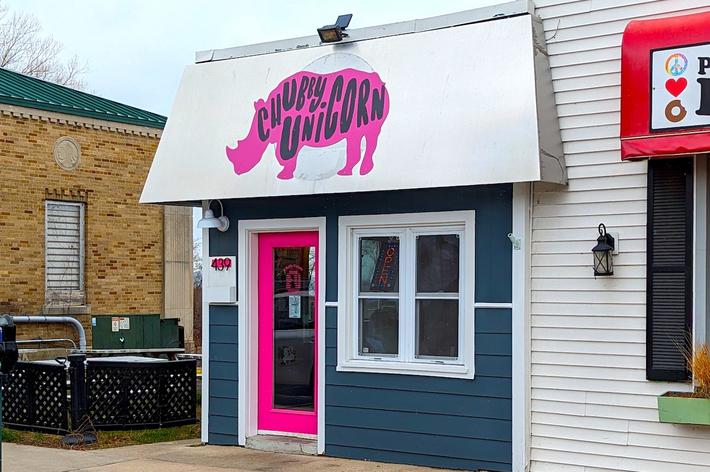TC takes urban chickens under its wing
Nov. 22, 2009
TC Takes Urban Chickens Under its WingBy Noah Fowle
With interest in local agriculture growing and more people interested in knowing where their food comes from, Traverse City is on the cusp of a popular movement with the passage of its chicken ordinance in September.
Russell Soyring, the Traverse City planning director said there has been little activity in his office about the issue since the ordinance passed despite the fact that it changes rules kept in place for more than 50 years to keep chickens out of the city limits.
“Typically, we might get some calls from neighbors,” he said. “But there has been zero. There’s no permit required.”
The issue was first broached to the Traverse City Council in the summer by city resident Kimberly Dante. After adding an herb garden and greenhouse to her 12th Street home, Dante said she began researching the Right to Farm Act, and realized raising chickens was a protected activity and petitioned the council.
“It was less of a battle than I thought,” Dante said.
Soyring said he and his colleagues turned to other cities that had recently passed similar ordinances to find out if there had been any drawbacks to allowing chickens within city limits.
“We did a lot of our research on the internet, contacting people in those cities to find out what the issues were. And there were virtually no issues,” he said. “Most have a severe limit on the amount you can keep and roosters seems to be a trouble some part.”
SELF-RELIANCE
Sarna Salzman, the executive director of SEEDS, a local non-profit, quickly threw its full support behind the initiative.
“This is just the beginning of going back to how our grandparents lived. We’re a big fan of ordinances to make it easier for people to cohabitate with livestock,” she said. “We’re trying to make more self-reliant communities, and that’s about feeding yourself on a small scale level.”
In July, prior to the ordinance passing, SEEDS started its own small hen operation in Garfield Township on the grounds of the Grand Traverse Commons.
Angela Stricker lives a block away from Dante and quickly got her operation underway before the cold weather of winter arrived, building an elevated coop and an enclosed run for her four hens. Stricker said her chicken operation was born out of her steady path on the slow food movement. A frequent shopper at local farmers markets, Stricker is also a member of an Eastport community-supported agriculture cooperative.
“I want to know where my food is coming from,” she said. “Next year I’m tearing up my front lawn to put in a vegetable garden.”
Stricker said in the spring, when her chickens begin to produce eggs, they will also serve a dual purpose by providing pest control and fertilizer for her new garden. With little previous farming experience,Stricker said it was relatively easy to get started by turning to the Internet. She also operates a blog, hippieingeeksclothing.wordpress.com, focusing on her efforts as a “slow foodie.”
With the attention the ordinance has put on the urban chicken operations, Stricker also discovered a new online community. One of her first cyber connections put her in touch with Tony Seely, who lives a few blocks away on 11th Street, and operates another blog, TCbokbok.blogspot.com. Seely said he hopes his blog answers the questions others might have as well as give him some insight to the process. Seely had hoped to join Stricker and start his operation this year, but scrapped his original plans for a coop for a more maintenance-free design, and will now wait until next spring to begin.
SEEKING ANSWERS
“Angela got a head start, I’m a little jealous,” he said. “Right now I’m using the blog to pick up little tips. But come spring next year, that will change and all of those questions I didn’t know to ask, I’ll be needing answers.”
Seely acknowledged that producing better tasting and more nutritional eggs was part of what prompted him to start raising chickens, but he would not discount the pet factor either. Seely has always had an interest in unusual pets, owning an iguana, a ferret and white mice in the past. With more time before his operation gets underway, Seely continues to research the hundreds of breeds available and plans on choosing two of the four more for their looks and demeanor over optimum egg production.
“Chickens are unique pets with interesting personalities,” he said. “They have some pretty outrageous looking ones, and others like to follow you around and sit on your lap.”
The Internet may provide plenty of avenues for self education on urban chickens, but Lynn Henning, the poultry species chair for the Grand Traverse
4-H Club, encouraged others interested in chickens not to overlook local resources of information. Henning expects to receive a growing number of inquiries next year, but added the basics are relatively simple.
WHAT BREED?
When deciding on a breed, whether it be for laying eggs, producing meet, for a pet or show, she said it is important to consider the cold winters and purchase a heavier breed. There are plenty of hatcheries that will ship young chicks directly, but bulk orders are required, sometimes consisiting of a 25 chick minimum. Instead, Henning said an even better source for small orders is the local feed store, where chicks can cost as little as two dollars. Next she said it is important to create a safe and enclosed area for the chickens. Not only to protect them from the elements and to keep them contained, but also to keep out predators, like dogs, cats and raccoons.
“Protect your flock,” she said.
In preparation for winter, she added it is a good idea to install some sort of heat-producing bulb in the chickens’ coop as well as installing a water source that will not freeze. In order to produce the best quality eggs, she recommends a higher protein feed mash. Henning estimated it would cost about $10 a month to feed four hens. Once they begin producing, she said you can expect about one egg every 24 to 48 hours, and that hens can produce for between 18 and 36 months, and live well past their egg producing years.
The experiment may not even be off the ground in Traverse City, and the popularity of it is already spreading through Northern Michigan. In Petoskey, the planning commission is in the early stages of rewriting all of its zoning ordinances and planning director Amy Tweeten said she already handed out copies of other cities’ chicken ordinances to the commission.
“The commission has preliminarily looked at the issue and they are keeping it in mind as they work through the zoning updates,” Tweeten said.
In Traverse City, there are no plans to expand the ordinance to allow for other types of non-traditional pets, but Soyring said there have already been more inquiries.
“We’d like to test and see how well the introduction of chickens is doing first,” he said. “People are asking about other types of livestock, and ducks. I guess duck eggs are pretty good. The movement to growing your own food and having more confidence what you eating is safe is getting people to think about being more independent.”
Trending

Springtime Jazz with NMC
Award-winning vibraphonist Jim Cooper has been playing the vibraphone for over 45 years and has performed with jazz artist... Read More >>
Dark Skies and Bright Stars
You may know Emmet County is home to Headlands International Dark Sky Park, where uninterrupted Lake Michigan shoreline is... Read More >>
Community Impact Market
No need to drive through the orange barrels this weekend: Many of your favorite businesses from Traverse City’s majo... Read More >>


